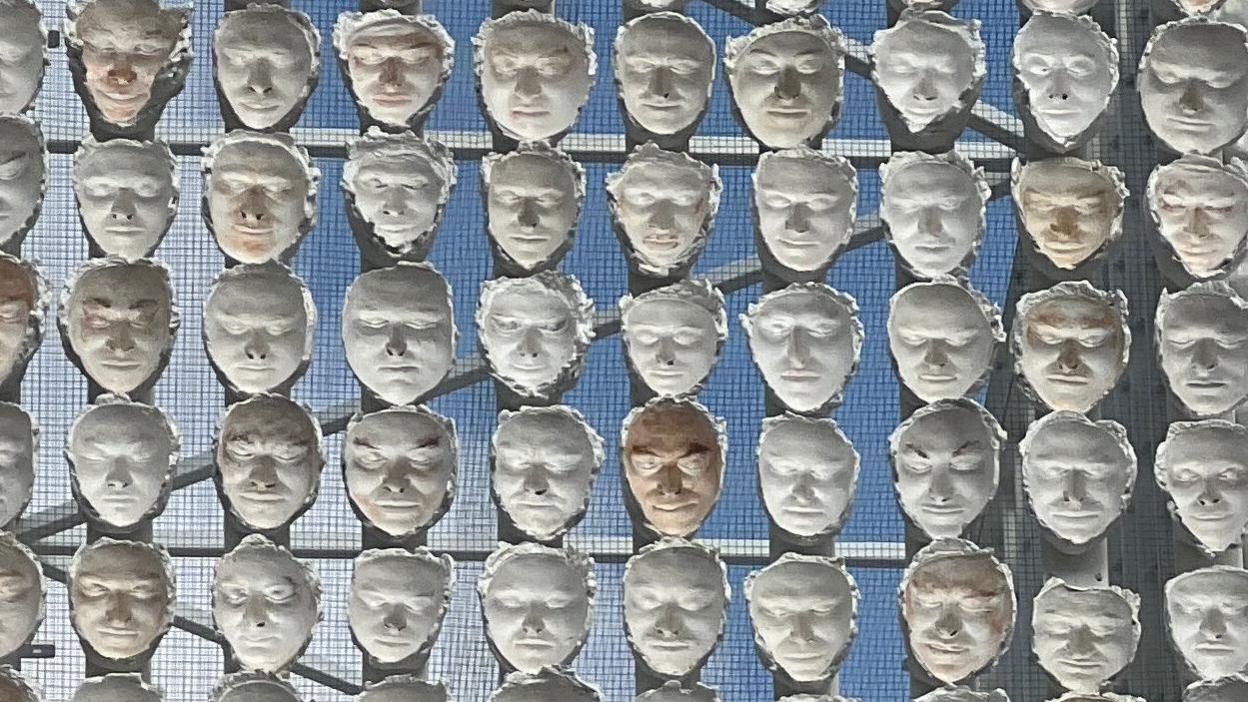London Trans+ Pride sees 'record-breaking' turnout
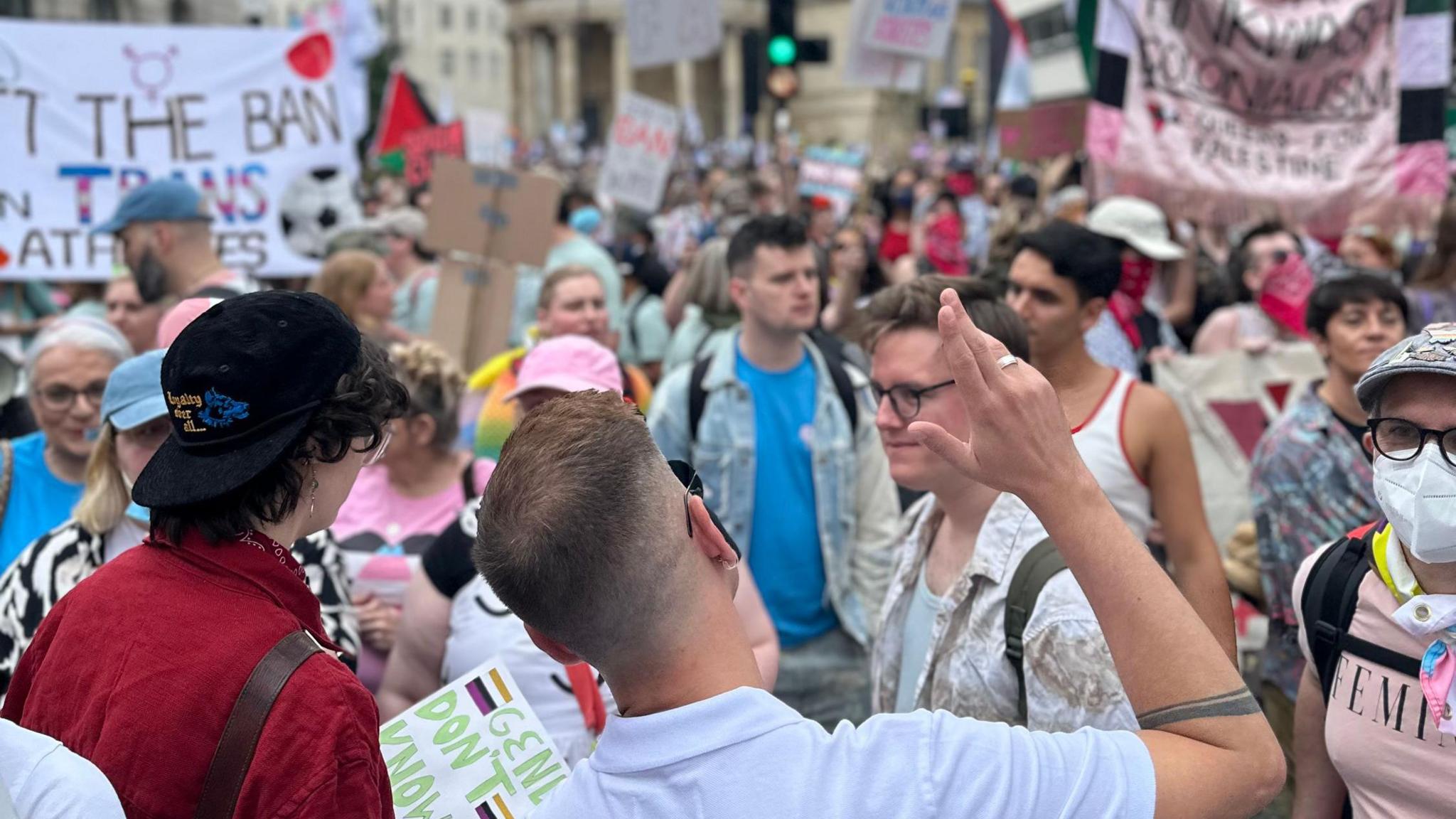
London Trans+ Pride 2025 was the biggest ever, organisers said
- Published
About 100,000 people turned out for London Trans+ Pride, making it the largest such event ever, according to organisers.
The march began at 13:00 BST on Saturday near BBC Broadcasting House, at Langham Place, and headed to Parliament Square Gardens.
Speakers included Heartstopper actress Yasmin Finney, and trans campaigner Caroline Litman, whose trans daughter Alice took her life in 2022 after waiting almost three years for gender-affirming healthcare.
Attendees said this year's event was important following the Supreme Court's April ruling, when judges said the words "woman" and "sex" in the Equality Act 2010 refer to a biological woman and biological sex.
London Trans+ Pride fundraising lead, Bobby Harding, said the group was delighted at the large number of people, adding: "We are more determined than ever to show up and let people know that we deserve a place on this earth."
About 40,000 more people joined London Trans+ Pride compared with last year, when the event recorded a turnout of about 60,000 people.
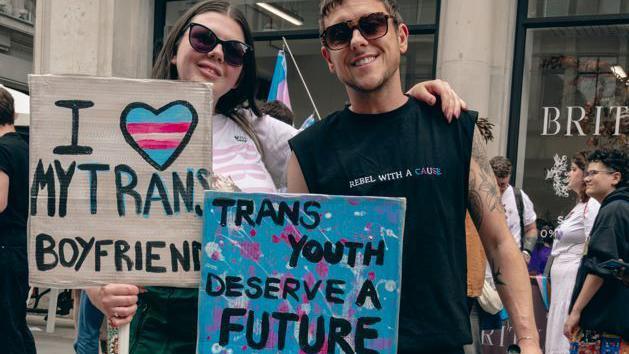
Organisers said about 100,000 people attended the event
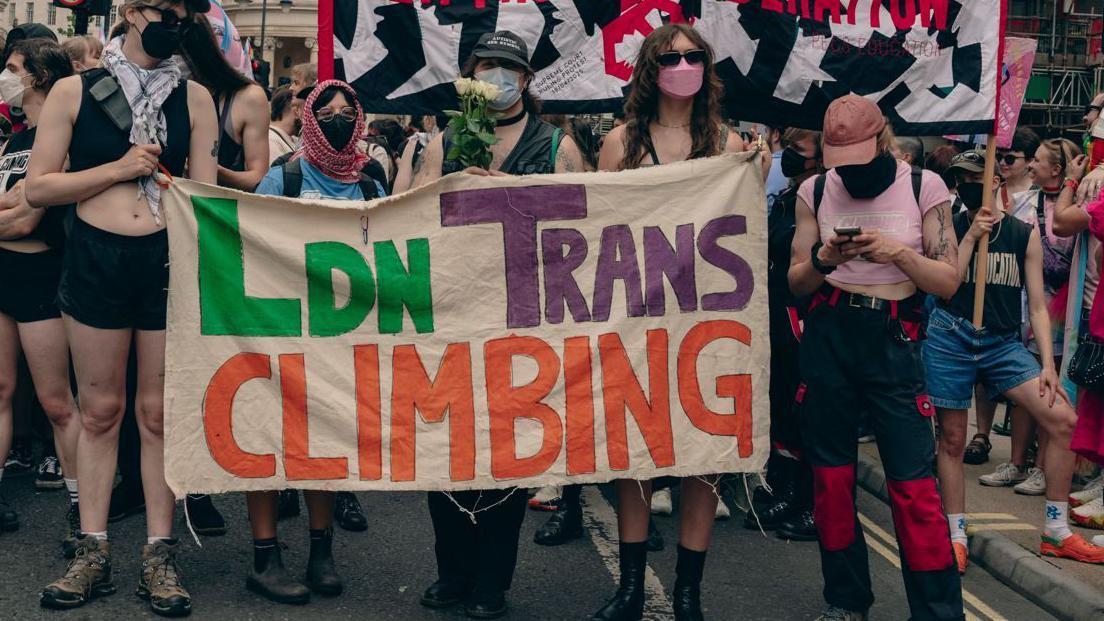
London Trans+ Pride's, Bobby Harding, said the group was delighted at the large turnout
Alex Parmar-Yee, of not-for-profit Trans+ Solidarity Alliance, said: "It's important to turn up en masse to make sure that it's very clear what the feelings are in terms of the rights which we're fighting for."
She said the next step for Trans+ Solidarity Alliance, a not-for-profit organisation supporting trans rights organisations and activists, was a call for transparency over the guidance in the wake of the Supreme Court ruling.
One of London Trans+ Pride's founders, Lewis G Burton, added: "Our community came together to show what real strength, solidarity and care looks like."
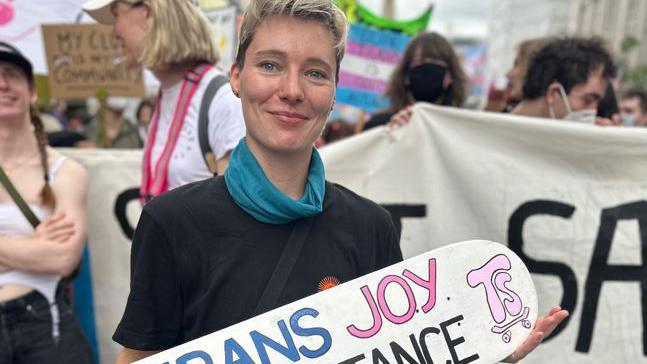
The event follows the ruling of the Supreme Court that the words "woman" and "sex" refer to a biological woman and biological sex
After the Supreme Court ruling the Equality and Human Rights Commission (EHRC) issued interim guidance saying trans women "should not be permitted to use the women's facilities" in workplaces or public-facing services like hospitals, with the same applying for trans men using men's toilets.
Cabinet Office minister Pat McFadden later said the "logical consequence" of the judgement and the EHRC guidance was that people will have to use toilets and other facilities of their biological sex.
In April, British Transport Police became the first to announce it would change its strip-search policy to have trans people searched by an officer in line with their birth sex.
The EHRC is expected to put forward a more detailed code of practice for ministerial approval this summer.
Listen to the best of BBC Radio London on Sounds and follow BBC London on Facebook, external, X, external and Instagram, external. Send your story ideas to hello.bbclondon@bbc.co.uk, external
- Published5 July
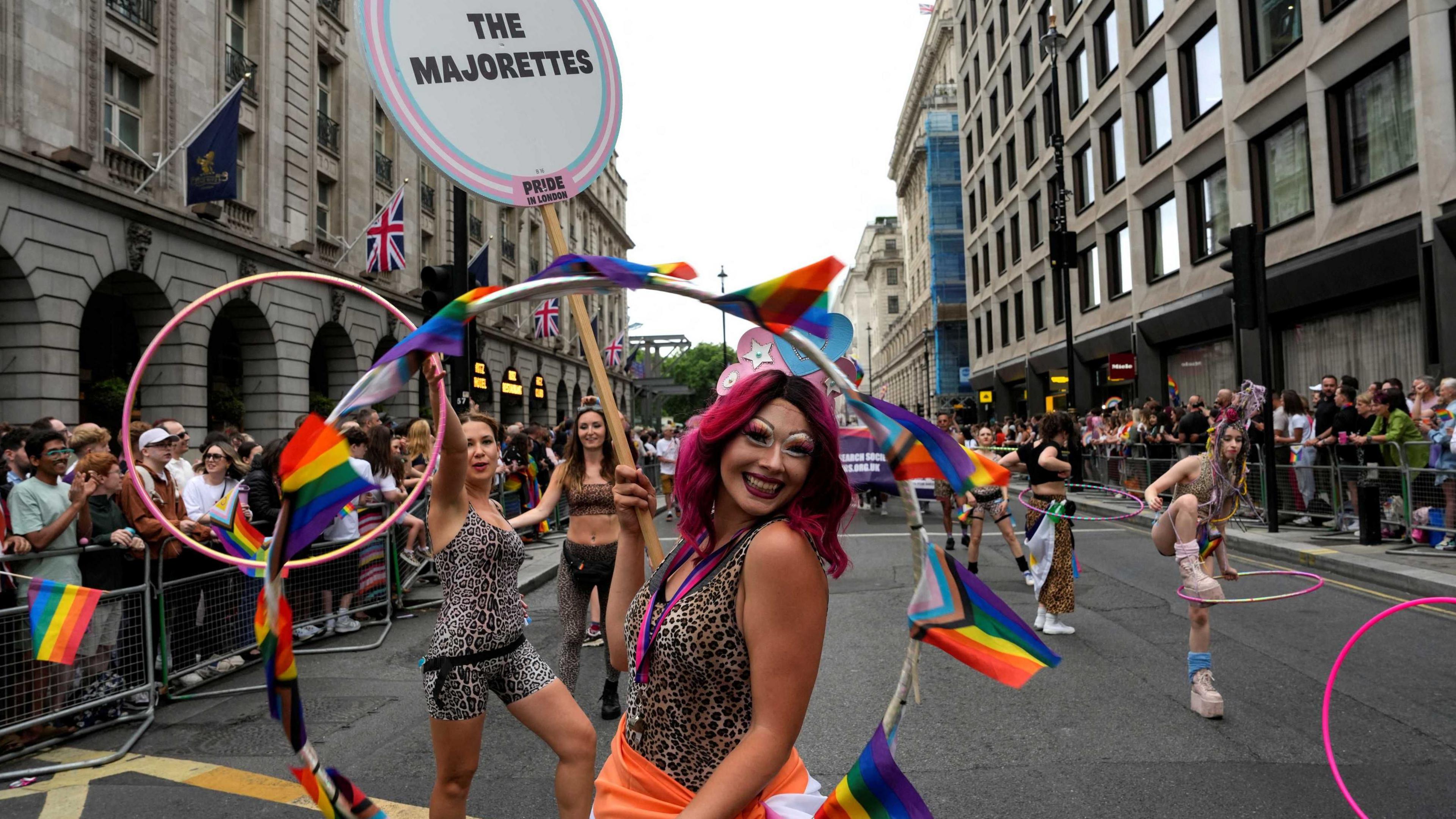
- Published8 July
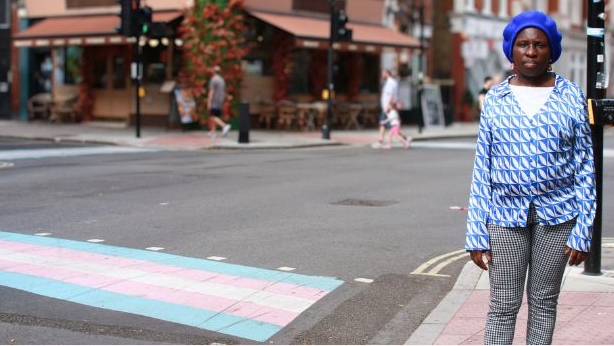
- Published18 September 2024
